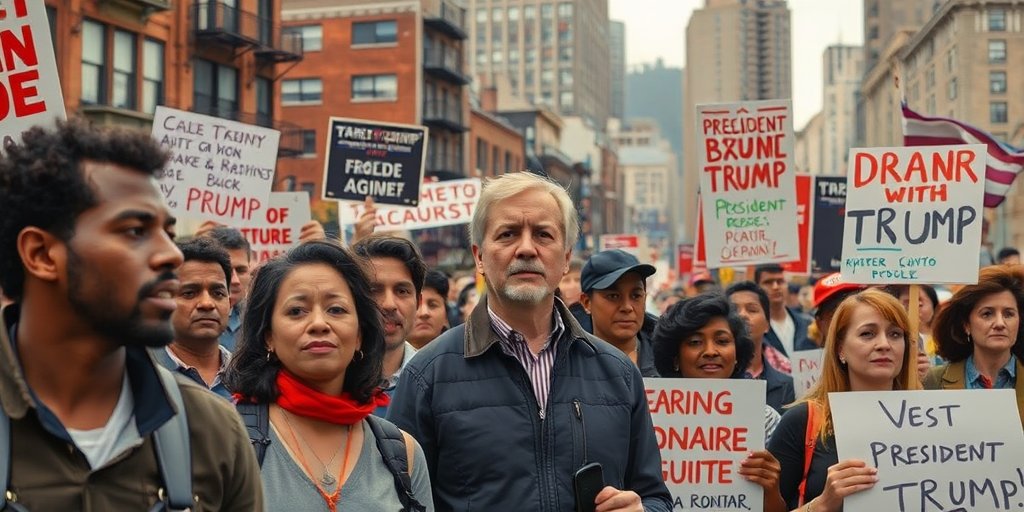Bill Maher Highlights Racial Dynamics at ‘No Kings’ Protests
In a recent episode of “Real Time,” comedian and political commentator Bill Maher sparked a significant conversation by questioning the racial diversity observed at the nationwide “No Kings” protests against Donald Trump. As reported by The Baltimore Sun, these demonstrations, intended to address concerns over democratic norms under Trump’s leadership, appeared predominantly attended by white participants. Maher’s remarks have opened a broader dialogue on racial representation in political activism and its implications for community dynamics.
Maher’s Observations and Panel Discussion
On October 24th, during his popular show, Maher addressed the notable lack of Black participants at the protests, citing reports and photographic evidence from various media outlets, including The Baltimore Sun. “Here’s a question that I saw—I did not realize until it hit the news a lot—was that it was very white. What do you make of that?” Maher posed to his panelist, Michael Steele, former Republican National Committee chairman.
Steele humorously deflected before suggesting that discussions focusing solely on racial composition might distract from the protests’ broader message about democratic safeguards. “That is a distraction for me to go down that road,” Steele commented, emphasizing the importance of unity and the overarching goals of activism beyond racial demographics.
Implications for the Local Community
Maher’s observations resonate deeply within community discussions about racial equity in protests and political movements. In areas like Baltimore and other diverse American cities, these protests provide a reflection of community and societal values. Black Enterprise, a platform committed to diversity and inclusion, has highlighted such disparities within political engagements as pivotal discussion points.
Local activist Gina Harris from Baltimore expressed her thoughts: “It’s crucial to consider why Black voices might feel sidelined in these movements. Are the organizational structures inclusive, or do they inadvertently alienate key community members?” Her concerns prompt reflection on whether protest organizing efforts adequately encourage diverse participation, which is vital for representing a broader spectrum of societal views.
Potential Underlying Reasons
Maher speculated that fear of surveillance or professional repercussions might discourage Black community members from attending high-profile demonstrations. In a media environment increasingly aware of privacy, such concerns are especially pertinent. “Maybe when I go into work, I’m not going to be welcome there. And I think Black folks have a greater understanding of this than the white folk,” Maher added, alluding to potential socio-economic vulnerabilities that minorities might face.
Historical and Ongoing Issues
This concern is not new. Historically, minority communities have contended with disparate ramifications from activism, ranging from employment discrimination to targeted monitoring. This legacy can perpetuate apprehension over public political engagement within marginalized groups, such as those in Baltimore. Engaging in racial justice initiatives requires not only confrontation with these fears but a community-driven effort towards inclusive solutions.
Counteracting Underrepresentation
Addressing these racial disparities in protest participation involves concerted efforts from community organizers and activists. Ensuring that protest movements communicate in culturally relevant ways and offering reassurances about privacy can foster more inclusive environments. These steps not only encourage broader participation but enhance the movement’s effectiveness by unifying diverse voices under common causes.
Experts stress that recognizing and overcoming such barriers could lend greater credibility and momentum to political movements like “No Kings.” Frances Turner, a sociologist at a prominent Baltimore university, noted, “Inclusion isn’t just a moral imperative; it’s strategically beneficial. Movements grow stronger when all community segments feel their voices contribute to the outcome.”
Moving Forward with Community Engagement
Building an inclusive movement requires sustained outreach. Activist groups are encouraged to utilize platforms like Black Enterprise, which actively engage Black communities through wide-reaching campaigns across social media outlets including Facebook and Instagram. In addition, initiatives like Black Enterprise’s Empowerment and Equity events series provide forums for discussion on racial disparities in political engagement, further expanding awareness and action.
The conversation sparked by Maher’s comments represents a vital opportunity for community reflection and growth. As diverse groups unite under shared objectives, addressing these disparities becomes fundamental for enabling movements to reflect the true tapestry of American society. Through balanced and informed discourse, communities can take meaningful steps towards inclusivity and the shared pursuit of equity and justice.







